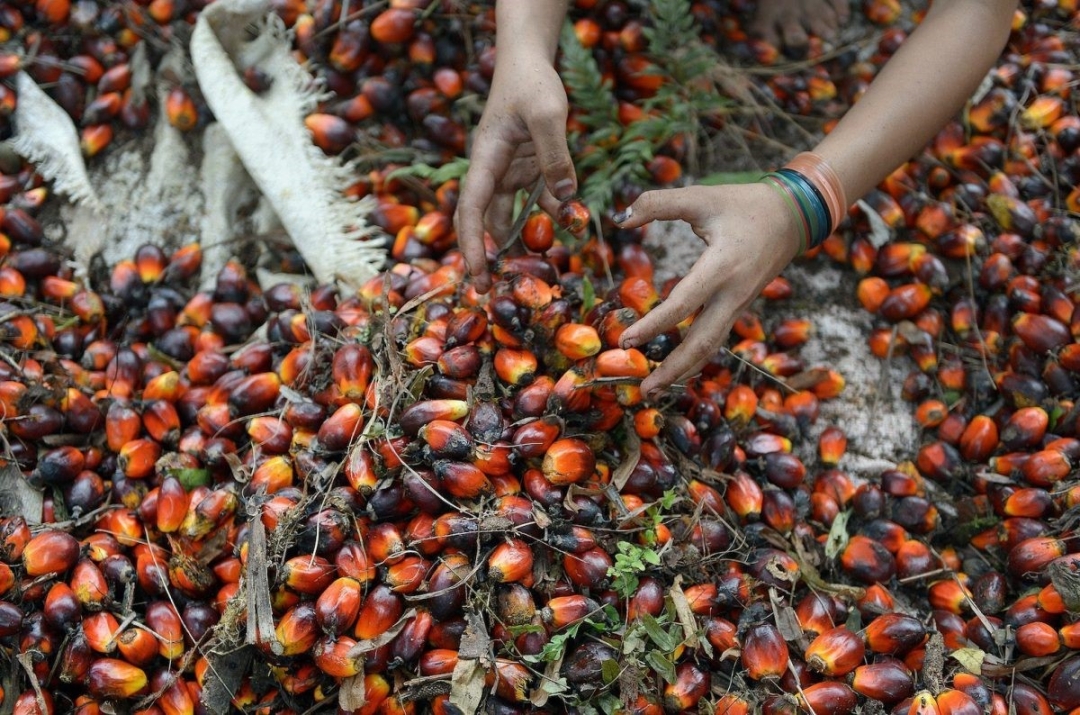ADVERTISE HERE

Trada has called on the youth of Sarawak to help play a key part in extending Malaysia’s lead in sustainable palm oil. — AFP photo
KUCHING (Dec 27): As Malaysia’s palm oil industry looks to press its global advantage, Pertubuhan Transformasi Dayak (Trada) called on the youth of Sarawak to help play a key part in extending Malaysia’s lead in sustainable palm oil.
In 2022, Malaysia’s palm oil export revenue reached RM135 billion, accounting for 2.4 per cent of GDP, with exports projected to increase to 16.30 million tonnes in 2023.
Smallholders, who make up 30 to 40 per cent of cultivation and number nearly 250,000, predominantly in Johor, Sarawak, and Sabah, are crucial to the industry’s success.
These smallholders provide livelihoods for many families and opportunities for youth, contributing significantly to palm oil production. In general, the agriculture sector, including palm oil, employed 1.86 million people in 2022.
Trada president Joseph Janting said: “Palm oil is a lifeline for many in Malaysia, especially in Sarawak. Our smallholders, who form a substantial portion of the industry, are not only supporting their families but also paving the way for our youth to step into a sector that promises sustainability and growth.”
He added: “Palm oil is at the forefront of Malaysia’s journey towards sustainable agriculture. Our commitment to sustainable practices places us in a unique position to lead globally, benefiting not just the current but future generations. This sustainable approach is crucial for Malaysian youth, offering them a landscape to grow and thrive.”
Around 96 per cent of Malaysian palm oil plantations are now MSPO-certified under the Malaysia Sustainable Palm Oil scheme. This was a new nationally mandated sustainability standard enforceable by law, and the first of its kind in the world.
Positive government action has continued in more recent years, with a plantation area cap established in 2019 through 2023, and new forestry laws enacted in 2022 to stiffen penalties for illegal logging.
The initiatives employed by the Malaysian government and oil corporations appears to be bearing fruit with some 83 per cent of palm oil refining capacity now operating under a ‘No Deforestation, Peat and Exploitation (NDPE)’ commitment.
Joseph also highlighted the declining rate of deforestation in Malaysia, which has been trending lower for some time, with Global Forest Watch recently reporting a sharp reduction in forest loss.
Highlighting the sector’s impact on the local economy, Trada believes that Sarawak’s youth can help unlock the potential of agriculture to move the domestic economy’s performance needle. In addition, TRADA views young people as powerful allies in ensuring the continued success and positive narrative of the palm oil industry both locally and globally.
By involving youth in palm oil agriculture, Sarawak can capture more value in production, distribution, and logistics. This will also increase employment in the sector, which is crucial for Malaysia to quickly extend its lead in the industry. On track to lead global sustainability goals, Trada stresses the importance of placing a strong emphasis on the empowerment of Malaysian youth in the sector.
“We are calling on the youth of Malaysia to become active participants in shaping the narrative around palm oil, as it will pay dividends, long term, from an employment perspective.
“Their energy and voices are powerful in dispelling myths and advocating for the truth about our industry’s commitment to sustainability and its economic importance,” he added.









 English (US) ·
English (US) ·